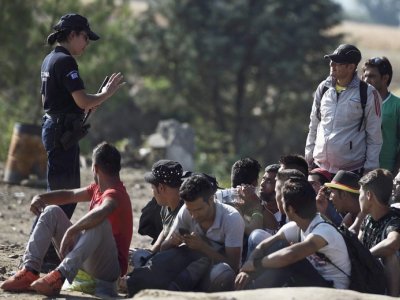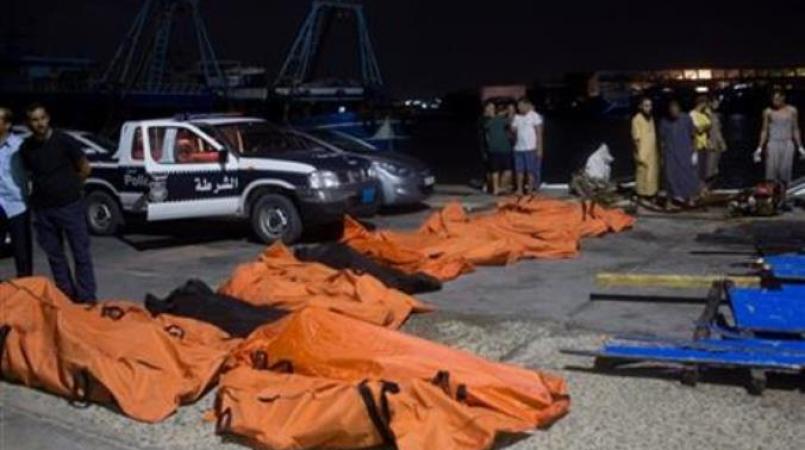Waves of migrants, Austrian deaths, set tone at EU-West Balkan summit

Vienna — Europe’s migration crisis dominated the agenda at a summit in Vienna on Thursday, even as unfolding events drive home the enormity of the situation. Ahead of the meeting between representatives of the European Union and six Western Balkan countries, leaders were taking in the news of the discovery of a truck full of dead migrants in Austria and reports of yet more migrants on their way from the Greek island of Kos.
The steady flow of migrants to Greece is exacerbating the problem of the flow of migrants from the six Balkan countries at the talks – Albania, Bosnia and Herzegovina, Kosovo, Montenegro, the former Yugoslav Republic of Macedonia and Serbia.
While those countries are seeing their own outflow of migrants to Western Europe, they have also become integral stepping stones for groups of migrants predominantly from the Middle East and Asia who arrive in Greece and then seek their way into more western parts of Europe via the Balkans.
Driving the point home, another 1,288 refugees from the Middle East, the vast majority of them Syrians, entered Macedonia from Greece in a day, Skopje authorities said on Thursday.
The refugees were registered and issued documents that give them three days to apply for asylum or leave the country.
The problem is of particular concern in Hungary, which has become the de facto second entry point to the European Union after the migrants first hit Greece.
The number of Middle Eastern refugees entering Hungary remained at a record high, authorities said on Thursday. Police on Wednesday registered 3,241 refugees, mostly Syrians, who crossed over from Serbia. Their number rose to a record high for the third consecutive day.
The refugee wave making it to Hungary was surging despite a protective fence the country has been building along its 175km border with Serbia.
The EU was represented at Thursday’s summit by foreign policy chief Federica Mogherini, European Commission Vice President Maros Sefcovic and EU Neighbourhood Policy Commissioner Johannes Hahn.
The summit was hosted by Austrian Chancellor Werner Faymann, who invited the prime ministers of the six West Balkan nations.
The heads of government of Germany, France, Italy, Croatia and Slovenia were also invited to the event.
Austrian Foreign Minister Sebastian Kurz appealed for a fairer redistribution of migrants ahead of the talks in an interview with German broadcaster ARD.
“The fact is, there are 18 countries in the European Union that have less refugees in total than Austria does.”
The situation facing Austria became even clearer on Thursday with the grisly discovery of a lorry full of dead migrants near the Austrian town of Parndorf, reported the Austrian news agency APA. Authorities said there were at least 20, and perhaps as many as 50, bodies.
“It’s a truck full of corpses,” according to an Interior Ministry spokesperson.
An investigation of the crime scene is under way. It cannot be confirmed if the dead suffocated in the truck, as some media have reported.
Germany has also been inundated with asylum seekers, with 800,000 expected this year. Forty-five percent of bids processed are submitted by migrants from the six Balkan states attending Tuesday’s summit.
The problem facing countries taking in so many is particularly grating for some, given the low numbers taken in by countries like Britain.
Net migration to Britain rose to a record high of 330,000 people — which counts all migrants, not just refugees — in the year that ended in March, up 40 percent from a year earlier, the Office for National Statistics reported on Thursday.
Immigration Minister James Brokenshire called the statistics “deeply disappointing” as Prime Minister David Cameron’s Conservatives aim to bring the number under 100,000.









Comments